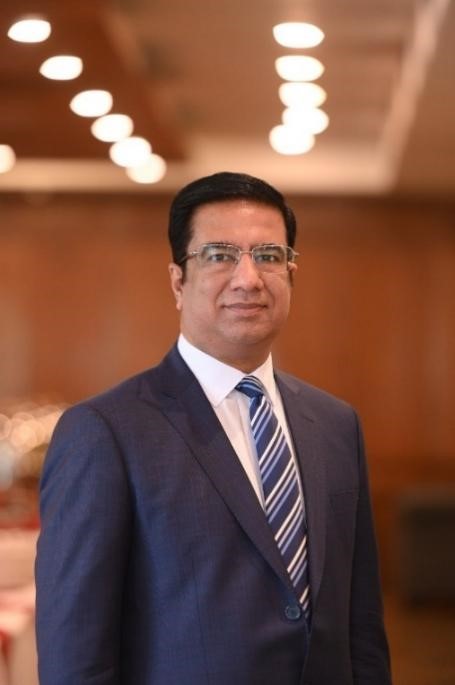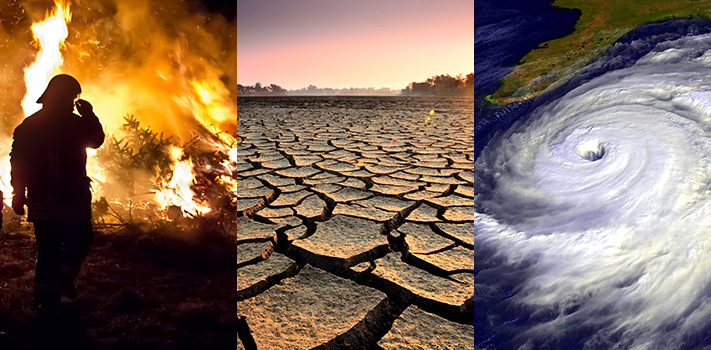

By Mr. Khalid Taimur Akram, Executive Director, Pakistan Research Center for a Community with Shared Future,
Communication University of China (CUC), Beijing, China
Published on 26th April 2022
Abstract:
The 21st century is the era of emerging Non-traditional security challenges. No country is immune from the devastating impacts of these perils. Global warming, climate change, floods, droughts, pandemics, migration and many other challenges have been impacting the national security of the countries. In this aspect, Climate change and environmental degradation have potentially impacted the socioeconomic and political fabrics of society. Amid this debate, there are different prospects regarding those processes and forces which shape security. It has been anticipated that Climate change will have adverse impacts on environmentally dependent socio-economic systems with the potential to cause population displacement. The paper examines the impacts of climate change and environmental degradation on national security. The discussion is built in the light of Securitization theory, coined by Copenhagen School under the work of Barry Buzan and Ole Waever. The study also highlights a way forward vis-à-vis evaluating climate mitigation policies.

Key-words: Non-traditional security challenges, climate change, national security, sustainable development
Introduction:
The very notion of security has long remained a center of discussion. The orthodox narrative of security with the ‘state’ as the main referent has preoccupied the minds of experts. The realist view of security where it is seen as a “derivative of power” reduces the complex concept of security to a mere synonym for power. The structural changes of the post-Cold War era have resulted in new views and conceptualization of the nature of security. According to this new approach, security comprises the broader dimensions of non-traditional or soft security, in addition to the established hard or military security. Contemporary trends and events in the environment, food, energy, health, development, and other sectors have fallen outside the purview of “traditional security”. These shifts have led to the conceptual underpinnings of security being applied in novel ways and new dimensions as tools for understanding and addressing common challenges. A broader definition of Non-traditional security challenges is perceived as: “Challenges to the survival and well-being of peoples and states that arise primarily out of non-military sources, such as climate change, cross-border environmental degradation and resource depletion, infectious diseases, natural disasters, irregular migration, food shortages, people smuggling, drug trafficking, and other forms of transnational crime”. Noam Chomsky in his book “who rules the world” has mentioned that the Doomsday clock is ticking and the catastrophe invoked the two major threats to survival: one is the nuclear weapon and the other is climate change. For understanding the very nature of these menaces, the environmental dimension to security must be clear. Following are the main aspects:
It allows to investigate the political process and effort behind the selection of the imminent threats that why some of them are considered as more relevant and urgent than others, i.e., Climate change.
Creating awareness of the immediate environmental threats can play a potential role in the transforming phase of the national security of the state.
Important themes like risk management, conflict resolution, and preventive apparatus can be the major areas in security studies.
Climate Change as an Emerging Non-traditional Security Challenge:
Climate change impacts the life of every person, however, there is a lack of extensive knowledge regarding the direct/indirect effects of climate change. Climate change refers to decades-long changes in the climate or variability in climate. The global community has a consensus that climate change is the most concerned transnational issue, and it has emerged as a potential dimension to peace, national security, and human rights. A report of the Inter-Governmental Panel on Climate Change (IPCC) highlighted those human activities had caused approximately 1.0 °C of global warming above pre-industrial levels, with the range of 0.8 °C to 12°C. Global warming is likely to reach 1.5°C between 2030 and 2052 if it continues to increase at the current rate. The cascading effects of climate change are attributed through its convergent shreds of evidence that manifest across all sectoral economies. The developing countries, coastal communities, and ocean-based economies are more vulnerable to non-traditional security challenges due to climate change. In this aspect, formulating nationaland international solutions to such risks is necessary for stable political development. Environment degradation is leading to climate change vulnerability. This change is occurring because of two main reasons. One is the natural short-term challenges including, natural disasters, floods, volcanic activities, droughts, etc. The second is the anthropogenic factors which refer to human activity. This includes rapid urbanization, use of land, and emission of greenhouse gasses.

In the book ‘’Collapse: How societies choose to fail or succeed’’, Jared Diamond, the author portrayed an image of ecological problems which can lead to societal collapse. He conducted a comprehensive assessment of the past and modern world. Under this study, certain environmental menaces were presented as a major cause of the societal collapse. In this aspect, four contributing factors were highlighted which led to the state’s failure:
· Environment damage
· Climate Change
· Hostile neighbors
· The societal response to environmental factors.
In contemporary times, the world has been witnessing many changes that established a profound connection between national security and Non-traditional security challenges.
A Case Study of Pakistan: Pakistan does not contribute massively to Greenhouse Gas (GHG) emissions. However, according to the Global climate risk index 2021, Pakistan was ranked at eighth position. The German Watch report has placed Pakistan as the fifth country which is most vulnerable to climate change.Climate change could particularly alter the biophysical relationship for crops, livestock, fisheries, and forests, including changes in rainfall patterns and increased thermal and moisture stresses. Internal displacement/migration due to climate change is another challenge, with people looking for better and safer livelihood opportunities. However, chances that new destinations may not accept migrants give rise to domestic chaos among people and communities, and even among countries. Climate-driven migration is a grave issue in Pakistan. Pakistan Meteorological Department (PMD) and Global Change Impact Study Center (GCISC) projected that maximum temperature rise would be in the Northern areas, Southern & Central Punjab, and KPK. Pakistan’s Climate change policy 2014 -2030 considers climate-driven migration a threat that stresses the infrastructure development in rural areas. Thus, there is a stark need for effective implementation of the laws. The increasingly unplanned movement towards urban areas is exerting pressure on already hard-pressed urban cities and the result is visible in megacities like Lahore and Karachi. Thereby, the Ministry of Climate Change and all relevant departments must formulate a robust plan for disaster management vis-à-vis migration.
Theoretical Approach to Understand Environmental Risks and Climate Change:
The theoretical foundation of this research can be best explained by the “Securitization” theory. Ole Waever and Barry Buzan were the main proponents of the theory.. They had taken the term security into account for broadening its agenda beyond the narrow concepts of state and military security. In the mid-1990s, wideners have advanced the argument that security is ultimately an outcome of a special social process or “speech act” rather than an objective condition. The speech act refers to the representation of a certain issue as an existential threat to security. It is used to articulate a problem in security terms and to persuade a relevant audience of its immediate danger. The Securitization theory holds two main pillars, i.e., identifying existential threats (mainly focusing on the non-traditional security issues), and taking emergency actions (effective countermeasures to curtail its server impacts). Thus, the security policies at the national level are not naturally constructed but are wisely designed by relevant actors, legislators and social groups. It is also noteworthy that with the applicability of securitization theory, the government of Pakistan has introduced many important initiatives to protect the environment. However, the country is still facing multifaceted issues to deal with climate change.
Way Forward: Sustainable Development and Green Transformation
Climate change and environmental degradation have daunting implications on the national security of countries. These global challenges need global solution, thus robust efforts are required at the regional and international levels to build a community with a shared future, maintain a healthy ecosystem, and tackle Non-traditional security challenges. Climate change is not a myth but a reality and our planet earth is eroding. In this aspect, we should promote and adopt clean, green, and resilient parameters to mitigate the adverse impacts of climate change. Sustainable development can be achieved along with green transformation by shifting toward renewable energy resources. Moreover, Renewable energy can be one of the major solutions to combat the devastating impacts of climate change, curtail Carbon emissions, and maintain a healthy ecosystem. In addition to the rising cost of fossil fuels, massive dependency on coal is also a threat to global climate. Thus, it is pertinent to develop a regional or robust national mechanism for clean energy. Giving impetus to green shift and technological development will protect the environment. The role of researchers, NGOs, IGOs, and experts cannot be neglected to bring climate change into a whole new phenomenon of study. There is also a dire requirement to engage academicians in policymaking so that awareness can be started from educational institutions. A collective effort will indeed take us towards a strategic path to save our planet earth.
The article was originally published by Pakistan Research Center for a Community with Shared Future (PRCCSF)
To view, see the links below:
Website @PRCCSF: https://prccsf.com/paper/pdf/Planet-Earth-Eroding-Understanding-Impact-of-Climate-Change-and-Environmental-Degradation.pdf
Facebook: https://www.facebook.com/PRCCSF/posts/123186973664318
Twitter: https://twitter.com/prccsf/status/1518839431960141825
